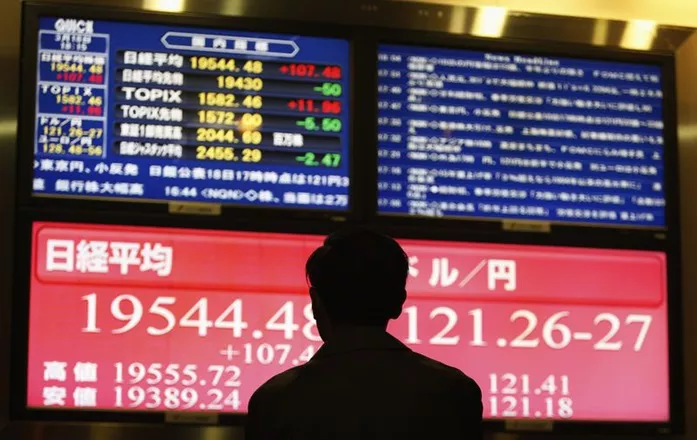Asian stock markets took a sharp downturn on Wednesday, reversing the temporary relief seen in the previous session. This plunge came after U.S. President Donald Trump increased tariffs on China to a staggering 104%, heightening global trade tensions.
Japanese and Hong Kong stocks were among the hardest hit, leading declines across the region. South Korea’s KOSPI index, in particular, appeared poised to enter bear market territory, marking a significant downturn.
Investors in Asia were also anticipating the Reserve Bank of India’s interest rate decision later in the day, which added an element of caution to market sentiment.
U.S. Stocks Slide as Trade Concerns Escalate
On Tuesday, major U.S. stock indexes closed sharply lower, with the S&P 500 dipping below 5,000 points for the first time in nearly a year. Futures linked to these benchmarks also slid in Asian trading on Wednesday, reflecting continued concern over global trade tensions.
Trump Increases Tariffs on China
President Trump further escalated tensions with Beijing on Wednesday by signing an executive order raising tariffs on Chinese goods to 84%, up from 34% announced earlier in April. With existing duties already at 20%, the total tariff on Chinese imports now stands at 104%. These tariffs are set to take effect later in the day at 04:00 GMT.
China had previously warned that it would “fight to the end” and implement countermeasures if the U.S. followed through with the new tariff hikes.
The escalation of trade tariffs between the U.S. and China has stoked fears of a broader slowdown in global trade, further weighing on investor sentiment.
China’s Market Response
Despite the tariff increase, Chinese shares remained mostly unchanged. Earlier, state-owned funds in China had pledged to increase investments in equities in an effort to stabilize markets shaken by the U.S. tariff threats. China’s central bank also expressed support for these measures, stating that it would offer re-lending support if necessary to stabilize the markets.
The blue-chip Shanghai Shenzhen CSI 300 remained stable, while the Shanghai Composite dipped by 0.2%.
Hong Kong Market Drops
In Hong Kong, the Hang Seng Index dropped more than 2%, with technology and automobile stocks among the hardest hit.
Japan’s Nikkei and South Korea’s KOSPI See Sharp Declines
Japan’s Nikkei 225 led regional losses with a 3% drop, reversing its gains from the previous session. The broader TOPIX index also fell by more than 2%.
In South Korea, the KOSPI index dropped by 1% on Wednesday, now 20% below its recent record high of 2,896.43 points, which it reached in July 2024. A bear market is defined as a decline of 20% or more from a recent high, sustained over time.
Other Markets Experience Losses
Australia’s S&P/ASX 200 fell by 1.2%, while Singapore’s Straits Times Index dropped 1.8%. Meanwhile, futures for India’s Nifty 50 declined by 0.4%, with markets waiting for the Reserve Bank of India’s expected interest rate cut of 25 basis points.
The continued trade tensions between the U.S. and China, coupled with weaker global markets, left investors on edge, contributing to widespread market declines across Asia.
Related Topics:


